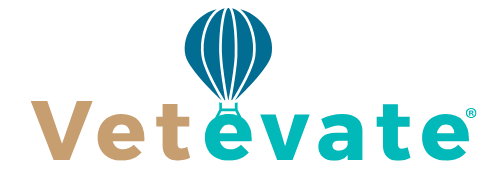The veterinary job market is highly competitive, and staying informed about opportunities can make all the difference for professionals seeking to advance their careers. With positions ranging from general practice veterinarians to specialists in emergency, exotics, or large animal medicine, the field offers a wide variety of paths. However, the best jobs often get filled quickly, sometimes before they are widely advertised. For this reason, signing up for email alerts on a veterinary job board is one of the most effective strategies job seekers can use. These emails deliver fresh opportunities directly to your inbox, ensuring you are among the first to know about new postings. By doing so, they give you a competitive edge in securing desirable positions before the market becomes crowded with applicants.
Job boards tailored to veterinary professionals already provide a focused environment, but their email services elevate the process further. Instead of repeatedly checking a website or risking missing out on time-sensitive listings, candidates can rely on automated alerts to keep them informed. This convenience saves time and energy while ensuring they never miss an opportunity that could align with their skills and career goals.
The Convenience of Personalized Alerts
One of the strongest benefits of email alerts from a veterinary job board is personalization. Job seekers can typically set preferences for the type of roles they are interested in, the location they want to work in, and the level of experience required. For example, a recent graduate may want to receive alerts for associate veterinarian positions with mentorship opportunities, while a seasoned professional might be focused on leadership or specialty roles. Once preferences are set, the system filters out irrelevant postings and delivers only the most relevant opportunities directly to the job seeker’s inbox.
This level of personalization ensures that job seekers do not waste time sorting through positions that do not apply to them. It also increases the likelihood of finding roles that are a strong match. Instead of scrolling through dozens of listings, candidates can focus their attention on a handful of targeted opportunities. This efficiency matters because applying to veterinary jobs often requires thoughtful preparation of resumes, cover letters, and sometimes additional documentation. By receiving tailored listings, job seekers can invest their energy in applying to roles where they are most likely to succeed.
Additionally, email alerts can be set to different frequencies. Some job seekers may prefer daily notifications to stay on top of the latest listings, while others may opt for weekly summaries. This flexibility gives candidates control over how often they receive updates and how they integrate the alerts into their job search routine.
The Advantage of Early Access
In the veterinary profession, timing is often critical when it comes to job applications. Many practices receive a high volume of responses as soon as they post an opening, especially for desirable positions in well-established hospitals or specialty practices. The earlier a candidate applies, the better their chances of being considered before the employer is overwhelmed with applications. Signing up for job board emails ensures that job seekers learn about new opportunities as soon as they are posted, giving them a valuable head start.
Early access can also be a deciding factor in competitive markets. In areas with veterinarian shortages, employers may move quickly to secure strong candidates. Being among the first applicants not only increases visibility but also demonstrates initiative and enthusiasm. For job seekers, this can help them stand out and potentially secure interviews before the employer closes the listing or becomes selective due to application volume.
Furthermore, some veterinary job boards allow employers to post positions with limited visibility or to share them exclusively with subscribers before making them public. By signing up for emails, job seekers gain access to opportunities that may not appear on other platforms or may only be available for a short period of time. This insider access further increases the chances of finding and securing high-quality roles.
Building a Smarter Job Search Strategy
Email alerts from veterinary job boards are more than just convenient—they are a strategic tool for building a smarter job search. By receiving consistent updates, job seekers stay connected to market trends. They can observe which roles are most common, which regions are hiring, and what types of benefits or incentives employers are offering. This information helps candidates better understand the job landscape and position themselves effectively when applying.
For example, if a candidate notices that many postings highlight continuing education support or signing bonuses, they can prepare to negotiate for similar benefits. If alerts reveal that certain regions have a higher demand for veterinarians, job seekers might consider relocating to take advantage of those opportunities. The ongoing stream of information helps professionals make data-driven decisions about their careers instead of relying on assumptions or limited perspectives.
Email alerts also keep job seekers accountable and engaged. It is easy to lose momentum in a job search, especially if current employment demands a lot of time and energy. Regularly receiving targeted opportunities in an inbox serves as a reminder to stay active and proactive. Even if a candidate is not ready to apply immediately, they can save listings for future reference or adjust their search preferences to reflect evolving goals.
Finally, these alerts create opportunities for long-term career growth. Job seekers do not have to wait until they are unhappy in their current roles to sign up. Even professionals who are satisfied in their positions can benefit from monitoring the market. By staying aware of opportunities, they remain prepared to advance when the right role arises, ensuring they do not miss chances for growth or specialization.




